The Publishing
[ New York Times Journalists, 1971, Renato Perez]
[ New York Times Journalists, 1971, Renato Perez]
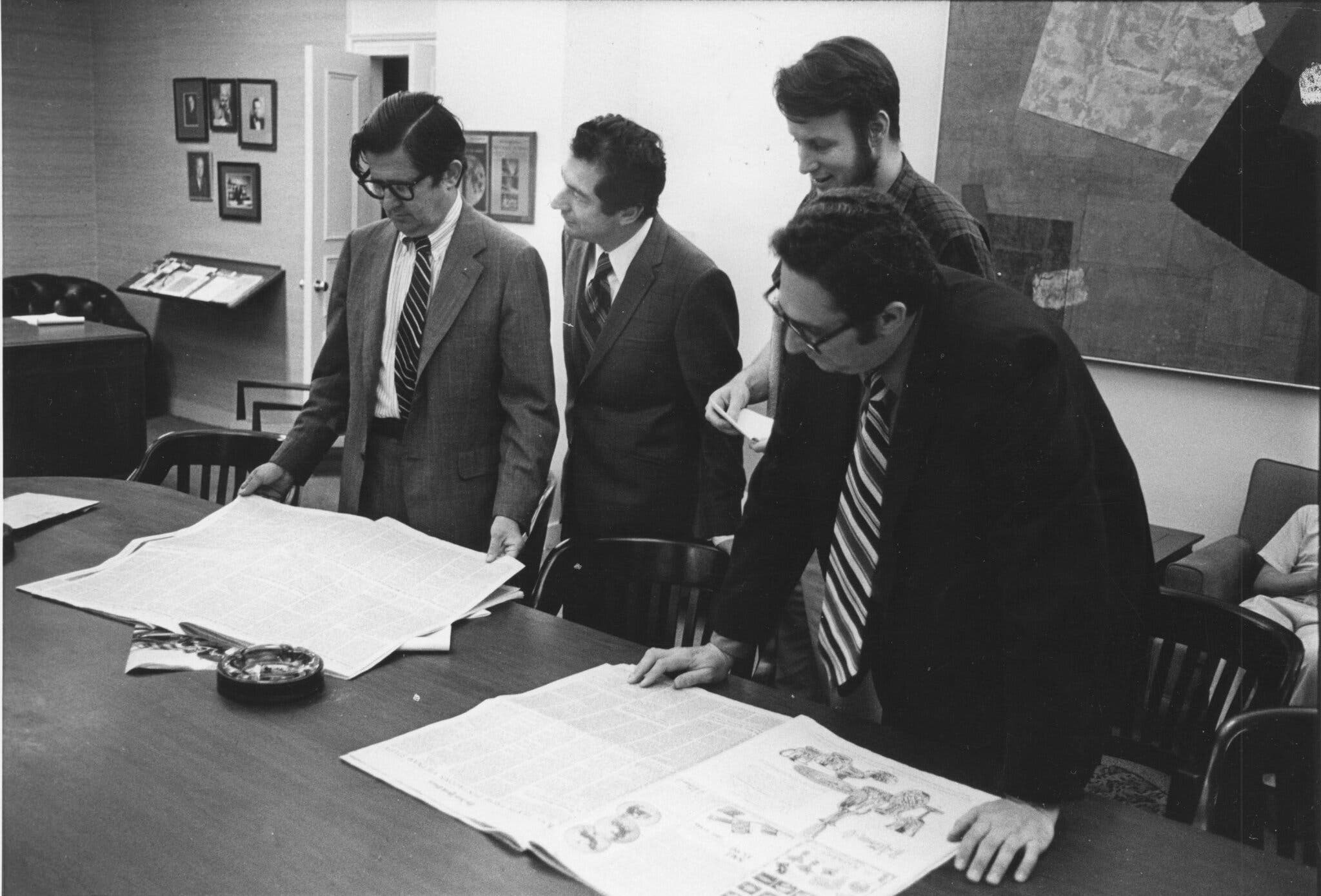
On June 13, 1971, the New York Times published its first article containing information leaked from the Pentagon Papers.
At first, Nixon did not address the Pentagon Papers as they concerned the Johnson and Kennedy administrations.
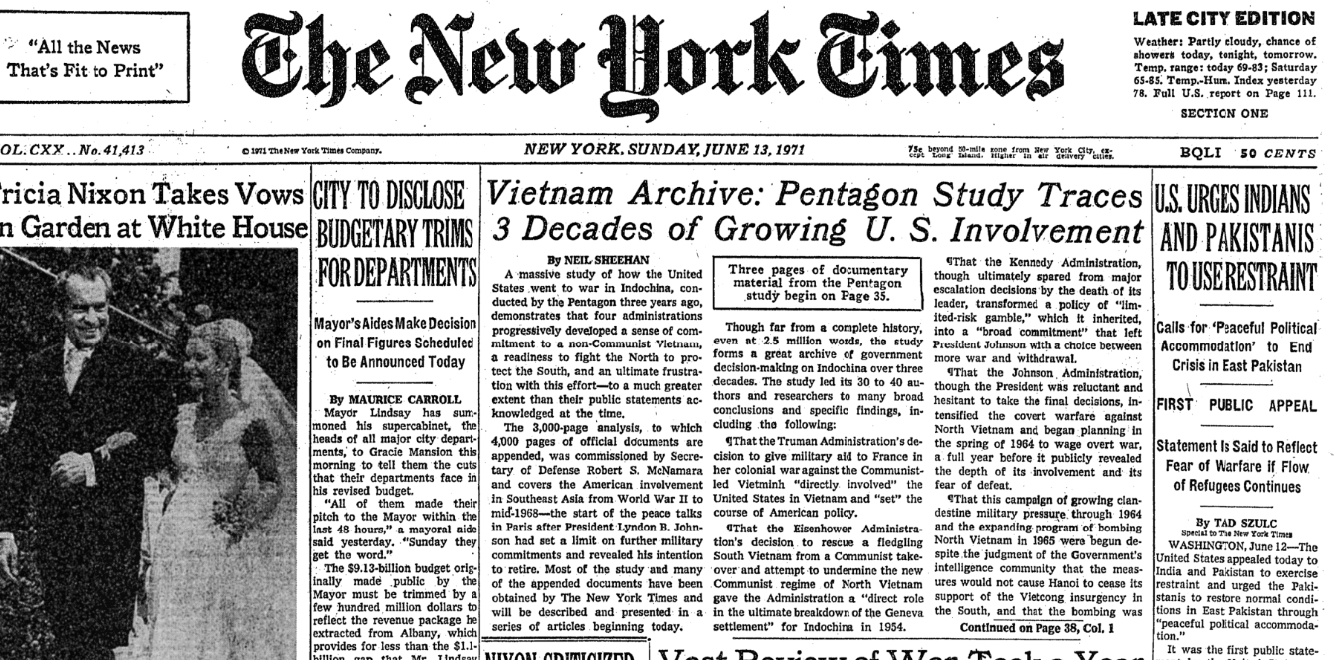
June 13, 1971,
The New York Times
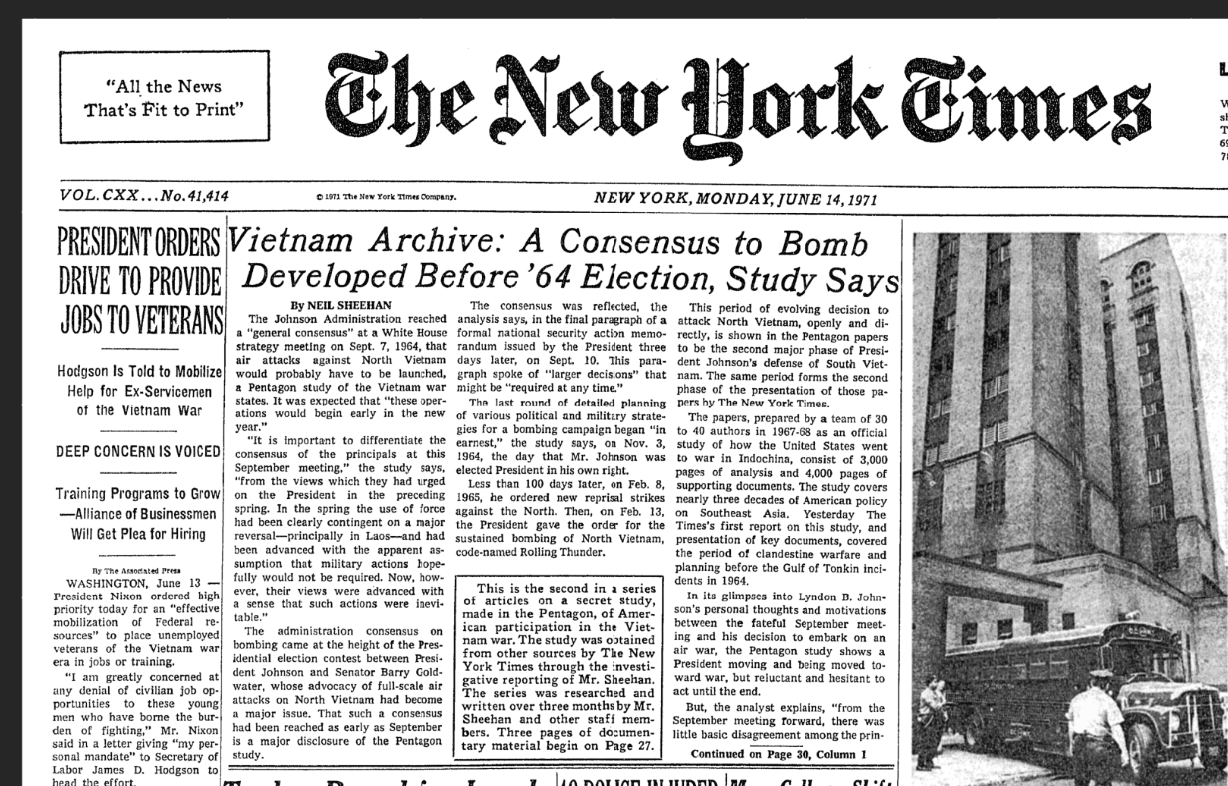
June 14, 1971, The New York Times
The following day (June 14, 1971), the Times published their second article containing more information from the leak. However, this time, Nixon wanted to halt publications because of the potential consequence of public outrage, which would discredit the government, place the country in a precarious situation, and harm their unity. More importantly, it would have undermined Nixon’s position as President.
Richard Nixon on Ellsberg, "Nixon Tapes"
John N. Mitchell from the U.S. Department of Justice sent a telegram to the New York Times requesting them to stop publishing more articles.
The next day (June 15, 1971) the New York Times published an article with the headline "Mitchell Seeks to Halt Series on Vietnam But Times Refuses."
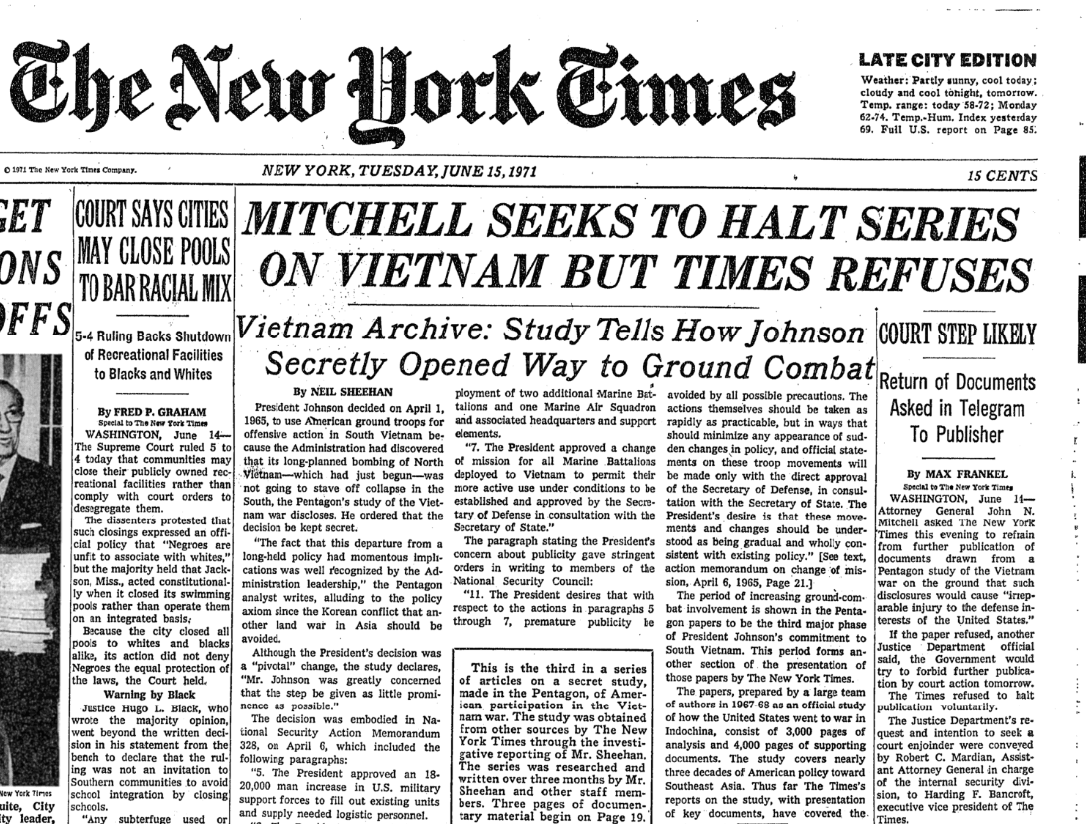
June 15, 1971, The New York Times
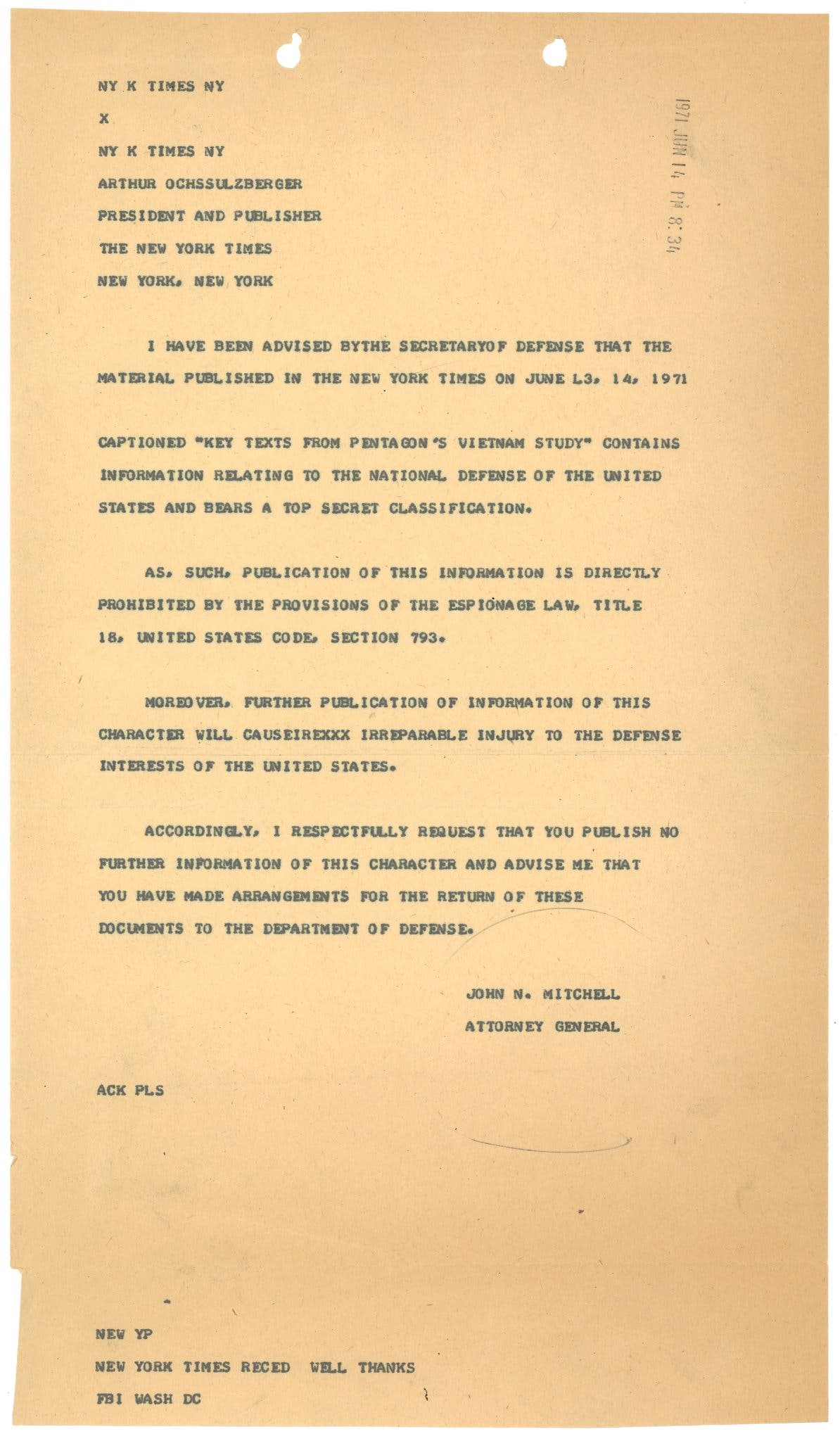
Telegram from Mitchell to the Times, June 14, 1971, New York Times Corporate Archive
The district court created a prior restraint, a judicial barrier that halted further publications of the Times’ series and acted as a buffer for the government to develop their case. Driving this action was the belief that the publications endangered national security and morale in times of war.
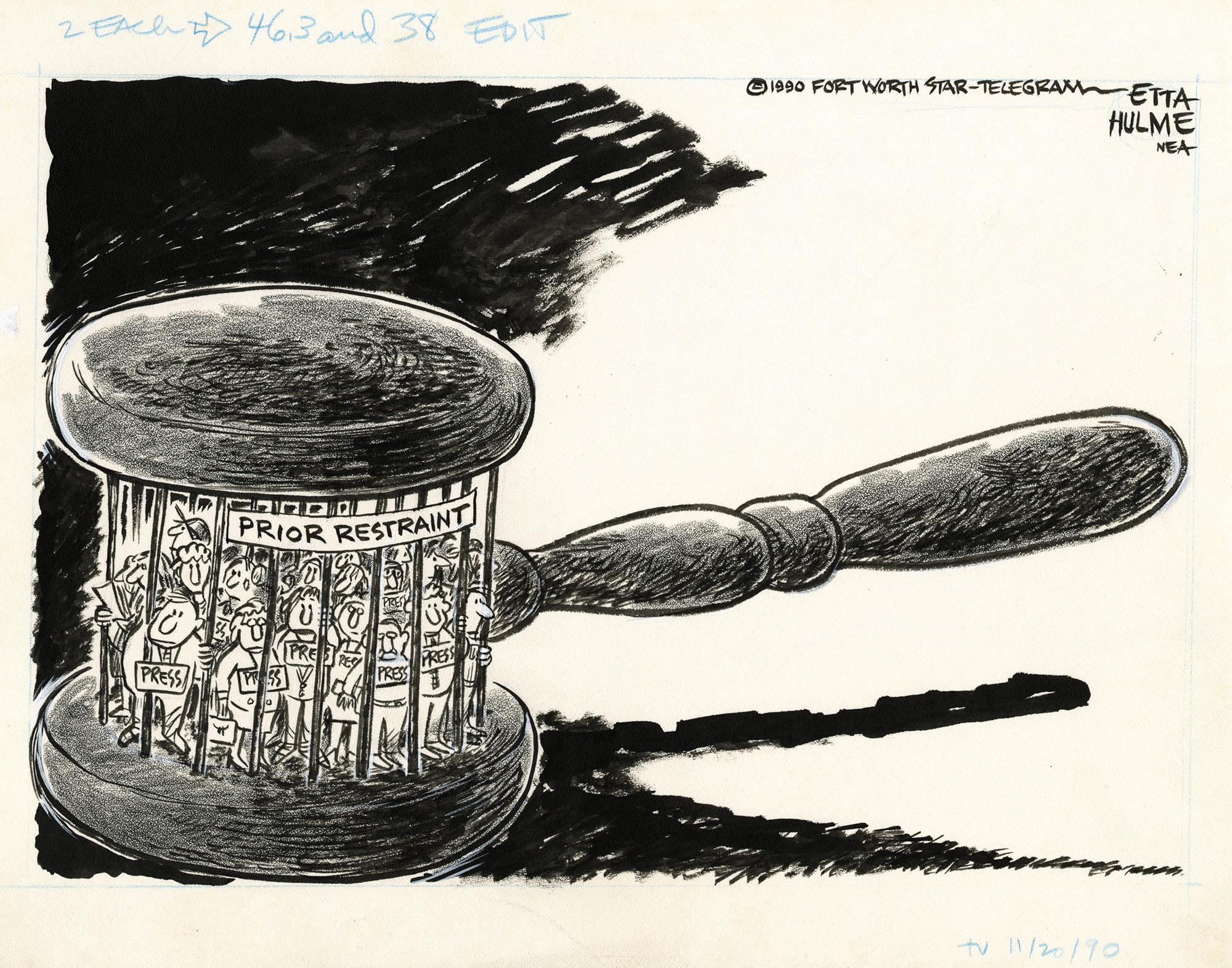
"Prior Restraint," November 18, 1990, Etta Hulme Cartoon Archive
Following the publication of the articles, other publishers followed suit, reporting about the Pentagon Papers. Facing extreme risks and legal issues, the companies disregarded their relations as competitors and cooperated to preserve the First Amendment.
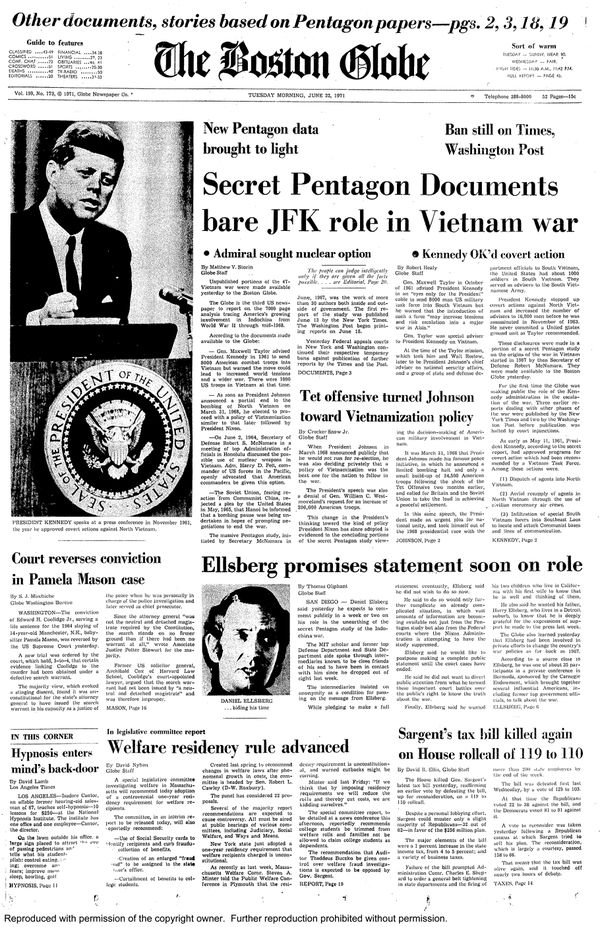
June 22, 1971, Boston Globe
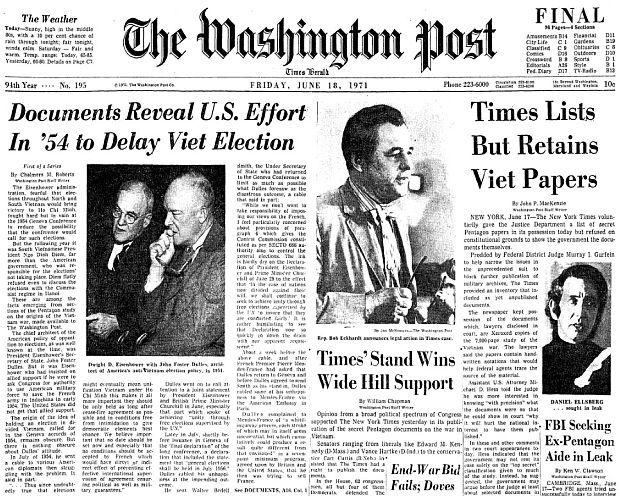
June 18, 1971, Washington Post
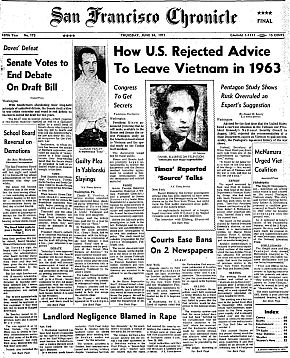
June 14,1971, San Francisco Chronicle
The minority in 1971 who supported the war felt the government’s dishonesty and secrecy betrayed them, and the grievances of the pro-withdrawal majority worsened. This sparked national outrage, as a massive credibility gap emerged between the citizens and the government.
“Mr. Ellsberg should be cited as a hero for literally forcing the government to be honest in spite of itself…I believe the laws broken by Mr. Ellsberg in taking the documents and disseminating them to the press are, at best, laws that need to be broken. Secrets can damage us far more than the truth.”
- El Paso correspondent, letter to Washington Post editor Ben Bradlee, Harry Ransom Center